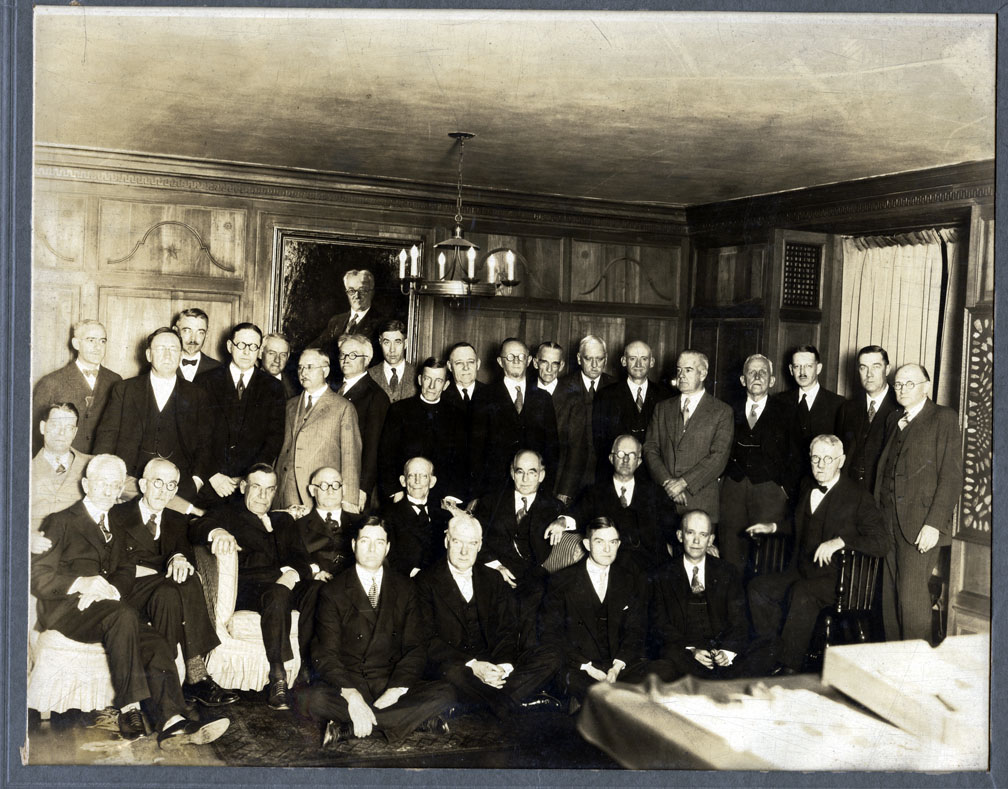In the winter of 1932, amid the Great Depression, a new organization formed in Asheville: the Normal Business Council. The group’s key mission was to create $100,000 worth of new business (roughly $1.9 million in today’s dollar) through a 90-day, citywide building repair and renovation campaign.
“We are not another charitable agency attempting to relieve suffering,” declared Curtis Bynum, the group’s general chairman, in a Feb. 14 article published in the Sunday edition of the Asheville Citizen-Times. “Such benefits may come as an indirect result of our program, but our primary effort is to strike at the root of our present crisis, and to contribute in at least a small way to the restoration of normal conditions.”
Within a month, 1,400 volunteers joined the organization as it prepared to launch its campaign.
“There are 1,000 blocks in Asheville and we expect each worker next week to secure $100 in pledges for each block,” H.E. Gruver, chairman of operations, declared at a March 11, 1932, meeting. Three days later, amid snowfall, canvassing began. Despite the unfavorable weather, the army of volunteers secured $36,501 (roughly $687,000 in today’s dollar) within the first 48 hours.
A majority of the pledges averaged between $5 and $10, The Asheville Citizen reported on March 17, 1932. According to the same article, participating homeowners received a red, white and blue card to display in their windows to avoid subsequent solicitations.
The Normal Business Council did not promote particular organizations, the article continued. “It merely urges that those doing repairs or construction work of any kind use local labor and materials,” the paper wrote.
By March 20, the organization surpassed its goal, raising $111,510.75. In the same day’s paper, Bynum celebrated the achievement, stating:
“We believe the field workers and the people of Asheville have every right to feel proud of their accomplishment. It takes courage to rise up and fight the depression, and this courage has been abundantly and convincingly displayed. Far more important than the mere quantity of work pledged is this display of courage. We believe that the fighting spirit of Asheville has asserted itself and that the beginning of better times is, therefore, immediately ahead.”
Over the next three weeks, pledges continued to pour in, surpassing $250,000.
That April, the Normal Business Council sponsored a five-day exposition inside the Grove Arcade. The event showcased a variety of local goods and services available to residents; the gathering also featured food vendors and live entertainment.
At the opening ceremony, Bynum addressed the crowd:
“The Normal Business exposition is an evidence of the cooperative spirit of Asheville. Call it the new Asheville, if you please, or the old Asheville chastened by the experience of the past three years. All of us realize that the only way to fight is side by side. ‘Every man for himself’ is the cry of defeat. This exposition is proof that Asheville dealers and Asheville buyers are for each other, and for their home town, first, last and all the time.”
By week’s end, an estimated 15,000 had attended the exposition.
Of course, the campaign didn’t end Asheville’s financial hardships. As historian Nan Chase writes in her 2007 book, Asheville: A History, debt committees for both the city and county negotiated with their creditors for over five years, beginning in 1931. By 1934, Chase continues, Asheville’s debt and accrued interest reached $56 million (roughly $1 billion in today’s dollar). Two years later, the author writes, “creditors and debtors inked an agreement that would dramatically lower the amount of money owed and limit the repayment period to 40 years.”
On July 1, 1976, the city of Asheville paid off its Depression-era debt.



Before you comment
The comments section is here to provide a platform for civil dialogue on the issues we face together as a local community. Xpress is committed to offering this platform for all voices, but when the tone of the discussion gets nasty or strays off topic, we believe many people choose not to participate. Xpress editors are determined to moderate comments to ensure a constructive interchange is maintained. All comments judged not to be in keeping with the spirit of civil discourse will be removed and repeat violators will be banned. See here for our terms of service. Thank you for being part of this effort to promote respectful discussion.